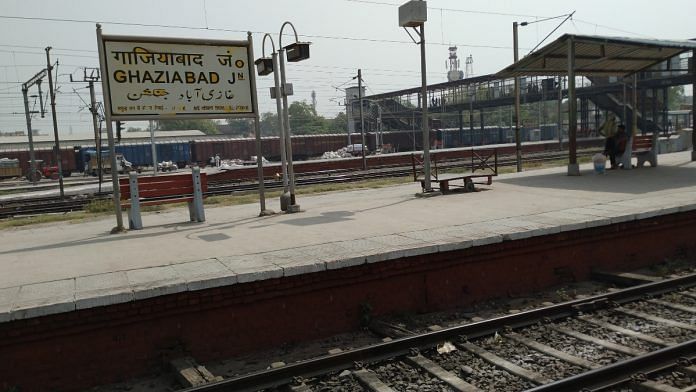New Delhi: Last week, the civic body of Ghaziabad in Uttar Pradesh cleared a proposal to rename the city (and district), and shortlisted three options, Gaj Prastha, Doodheshwar Nath Nagar or Haranandipuram. The proposal will now be forwarded to the state government for its approval.
If the state government accepts the proposal, it will be sent to the Ministry of Home Affairs (MHA) for a final nod.
The MHA will then consider the proposal, and consult various bodies, such as the Ministry of Railways and Department of Posts, before taking a decision on issuing a no-objection certificate.
Once the MHA clears the move, state governments can officially change the name of a place through a notification in their official gazette.
Over the past few years, several places have been renamed, including Gurgaon (Haryana) to Gurugram, and Allahabad and Faizabad (division and district) in UP to Prayagraj and Ayodhya, respectively.
The state governments carry out changes in the names of cities using their revenue codes, which often contain provisions to rename a revenue area.
To supplement this, in 2005, the MHA wrote to states reiterating guidelines issued in 1953 on changing city names, while carving out an exception for return to ancient names.
ThePrint explains the law on amendment of city and state names in India.
Change of city name
State governments have authority over matters of land.
While there is no constitutional provision that specifically deals with change of city names, states have done so under their respective revenue codes, which allow them to amend the names of a revenue area (such as a city, town and railway station).
For instance, the Uttar Pradesh Revenue Code, 2006 — under Section 6 (2) — provides the state powers to change the name of a revenue area by a notification in the gazette. “The state government may, by notification… name or alter the name of any such revenue area…” says the code.
In 1953, the home ministry laid down the procedure for changing city names in a circular issued to states. This circular was reissued in 2005 and is decisive on the point of renaming a city.
“Unless there is some very special reason, it is not desirable to change the name of a place which people have got used to,” the circular said.
The circular provided that change should be avoided for names with historical connection. Such a change, it said, cannot be merely on the grounds of “local patriotism” or for “linguistic reasons”. The state must also ensure that there is no other village or town, etc., of the same name in the state and neighbourhood that can lead to confusion, and it is required to furnish detailed reasons for such a name change to the Ministry of Home Affairs.
The 1953 circular also said that, where an ancient place has fallen into decay, the state government may consider restoring its “ancient name”. This exception has been frequently invoked by states to change names.
Change of state name
For states, the renaming procedure is outlined in the Constitution. Article 3 of the Constitution gives Parliament the power to regulate the formation of states, alteration of boundaries, change of name, etc.
Specifically, Article 3 (e) allows the alteration of the name of a place through a law. “Parliament may by law, alter the name of any state,” reads the provision.
However, a bill that seeks to change the name of a state must be introduced only on the recommendation of the President. The President must have referred this name-change legislation to the state legislature for its views before it is introduced in Parliament, says the provision.
Once the bill is passed in the Lok Sabha and the Rajya Sabha and also receives the assent of the President, the name can be officially changed.
Akshat Jain is a student of the National Law University, Delhi, and an intern with ThePrint.
(Edited by Richa Mishra)
Also Read: Bongo, Bangla, Paschim Banga—West Bengal’s demand for name change was never taken seriously



